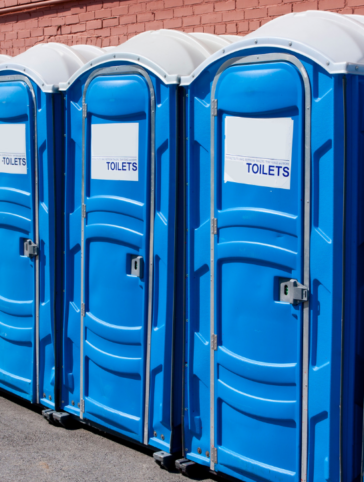
Nov 05, 2024
Managing Portable Toilet Contamination ExposuresClients with portable sanitation insurance policies are usually aware they must adhere to standards set forth by the US Occupational Safety and Health Administration. However, the coronavirus pandemic has changed almost everything about the way they do business, and many are confused about new guidelines that affect them.
The Occupational Safety and Health Act of 1970 mandated that employers take certain steps to maintain a healthy and safe working environment. To help enforce the many facets of this law, OSHA created standards describing criteria they use to measure compliance. OSHA periodically updates these regulations, but typically gives fair warning before enforcing them, giving employers time to make necessary adjustments- such as in portable sanitation.
While OSHA regulations relate to the enforcement of OSH law and are slow to change, guidelines are immediate responses to more temporary situations that threaten the well-being of workers. Thus, in response to the coronavirus pandemic, there are some new OSHA requirements for portable restrooms. Although these are not enforceable by law, the more closely clients adhere to OSHA’s advice, the less liability they risk in case someone gets sick.
Most of OSHA’s guidelines to prevent COVID-19 infection apply to a variety of diseases communicable through air and fomites, and to virtually all workplaces. Here are some of their cleaning recommendations that are especially pertinent to portable sanitation insurance claims:
OSHA also advises that employers encourage certain behaviors to minimize transmission of the virus among employees. Particularly applicable to porta-potties is a suggestion to post hand-washing signs in restrooms. Other suggestions include the following:
OSHA puts increased onus on employers by recommending they allow flexibility in work locations and relax policies regarding employee absences. Here are a few of their policy suggestions to prevent transmission:
Although OSHA guidelines do not specifically mention portable sanitation insurance, they do recommend employers collaborate with insurance companies to provide information. Of particular importance are policies that provide medical benefits and sick leave, or time off to care for family members that are ill. However, increased communication regarding all policies during this time of uncertainty eliminates potential misunderstandings.
Located across the Golden Gate Bridge, just outside of San Francisco, Tangram Insurance Services is a full-service Managing General Underwriter and Program Manager offering specialty programs. We focus on industry-relevant coverage, competitive pricing, and practical business and risk management solutions for your clients. Since we are not all things to all people, we make sure to create outstanding custom-built solutions that matter to those businesses, and the brokers who serve those industries. Contact us at (888) 744-9810.